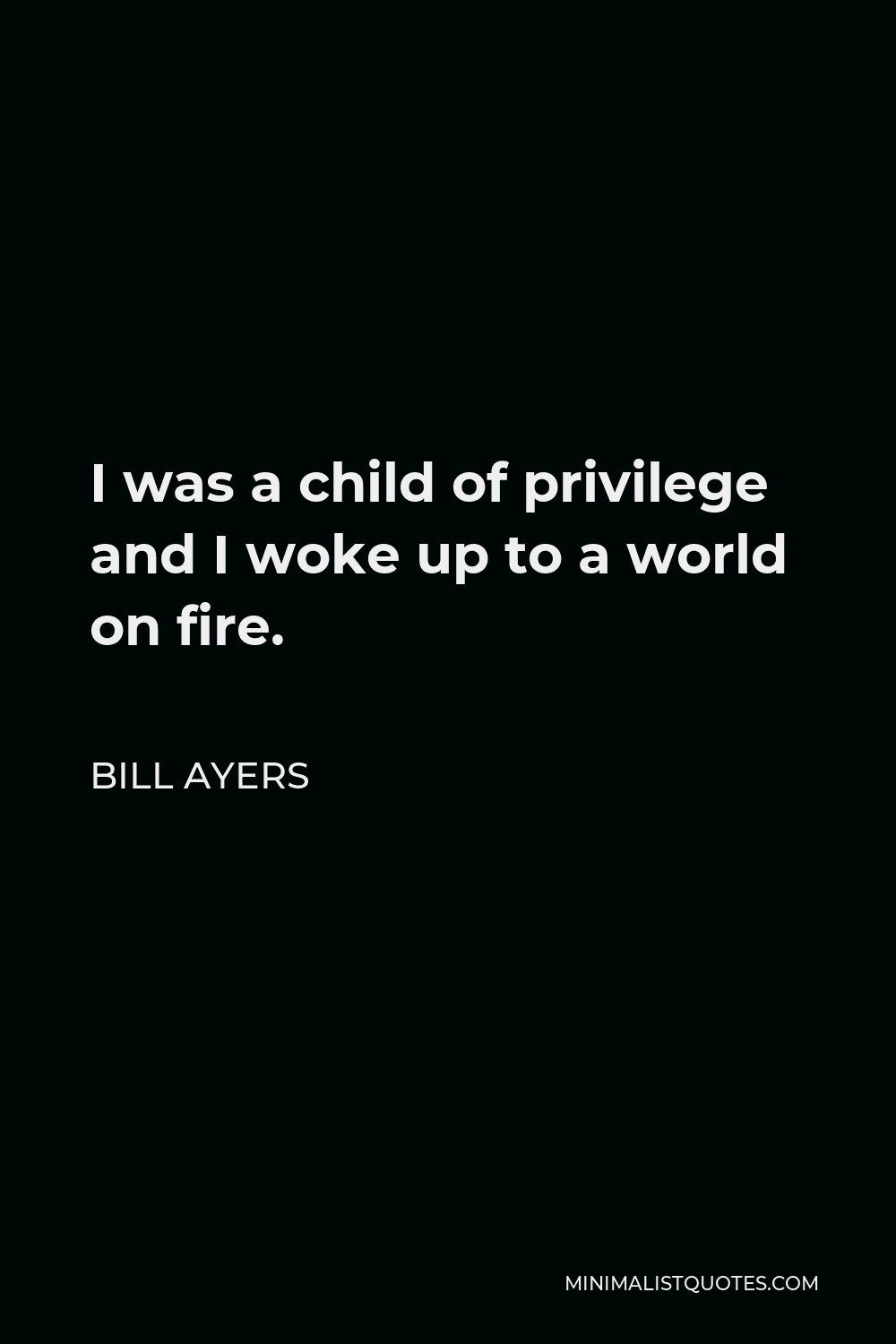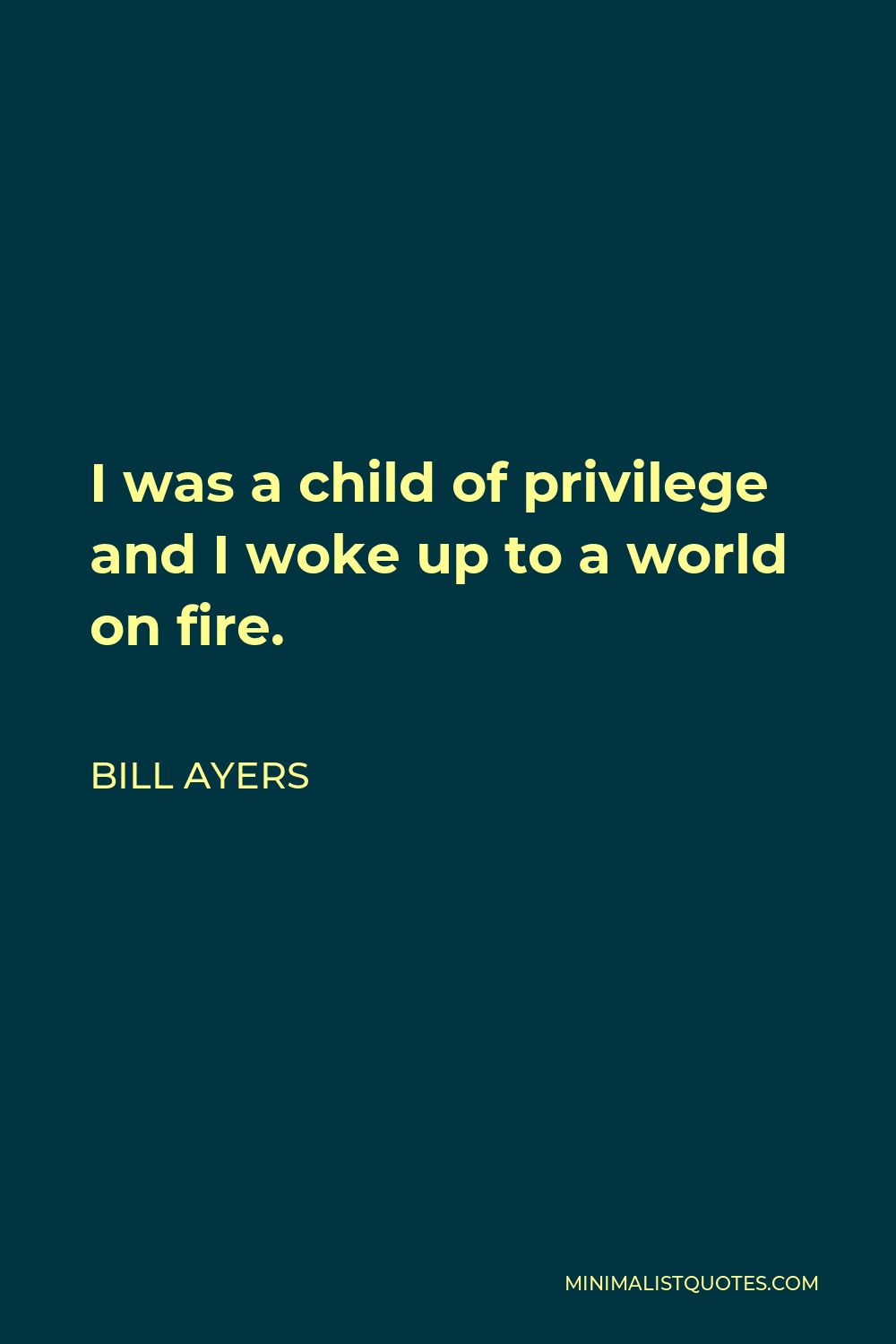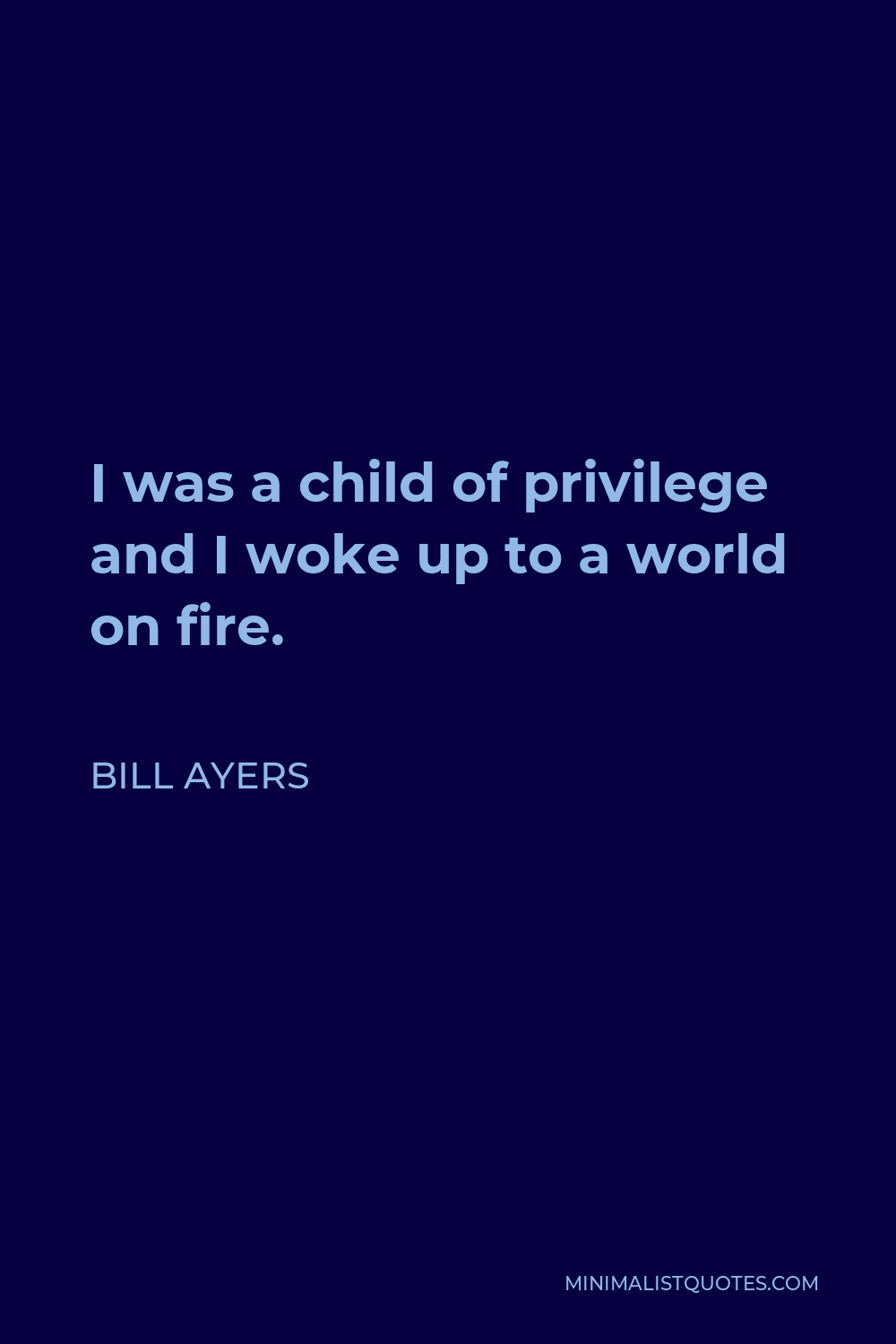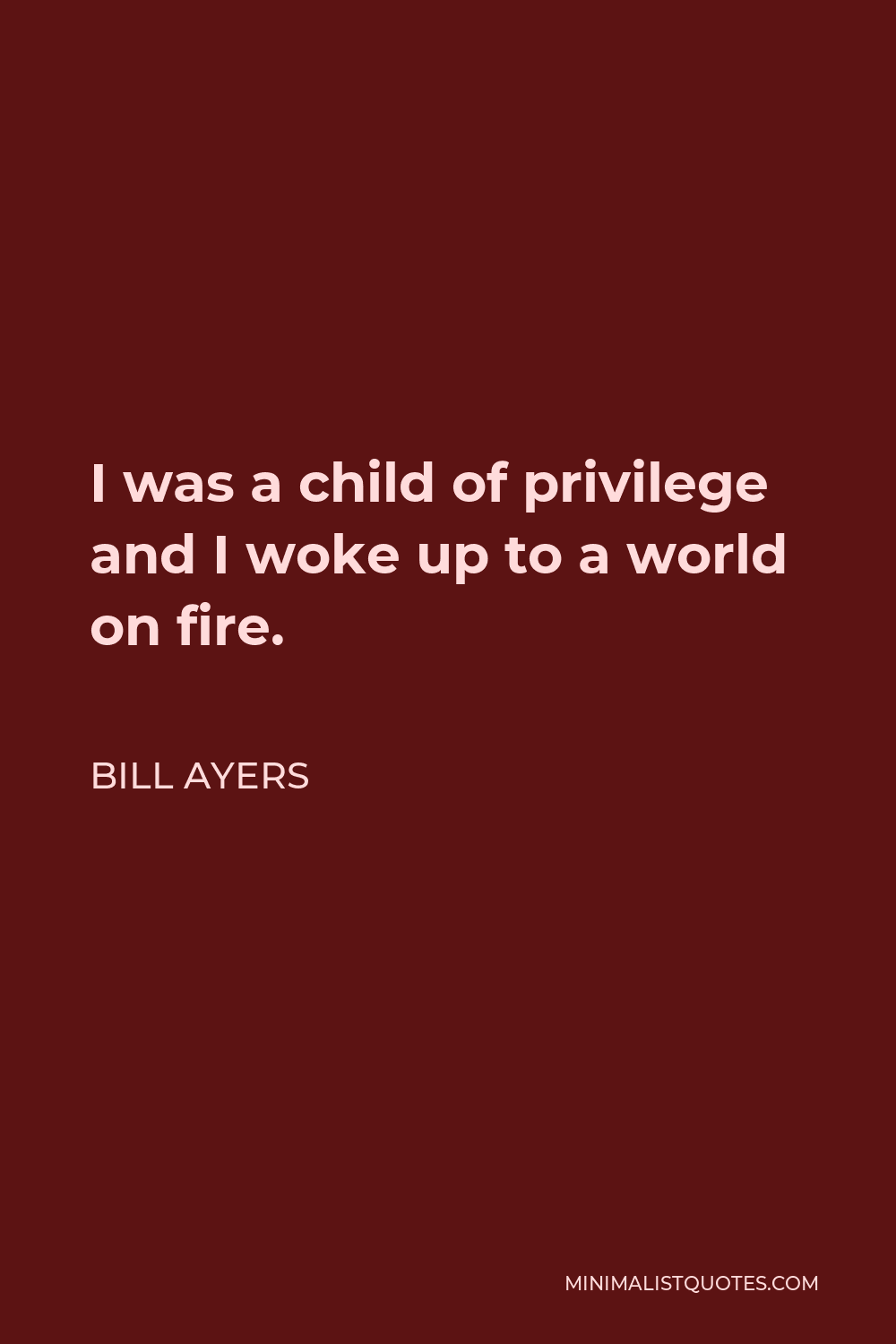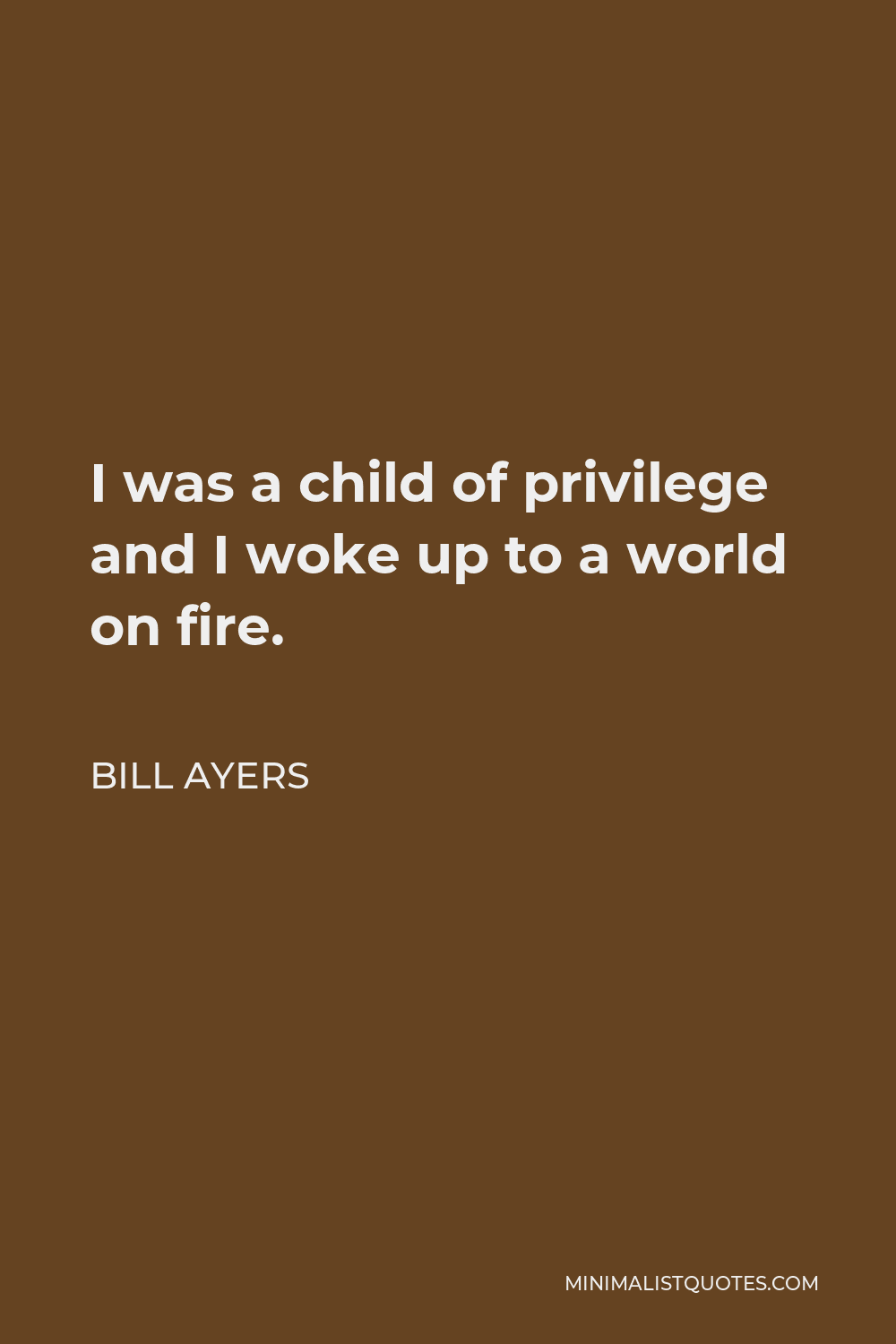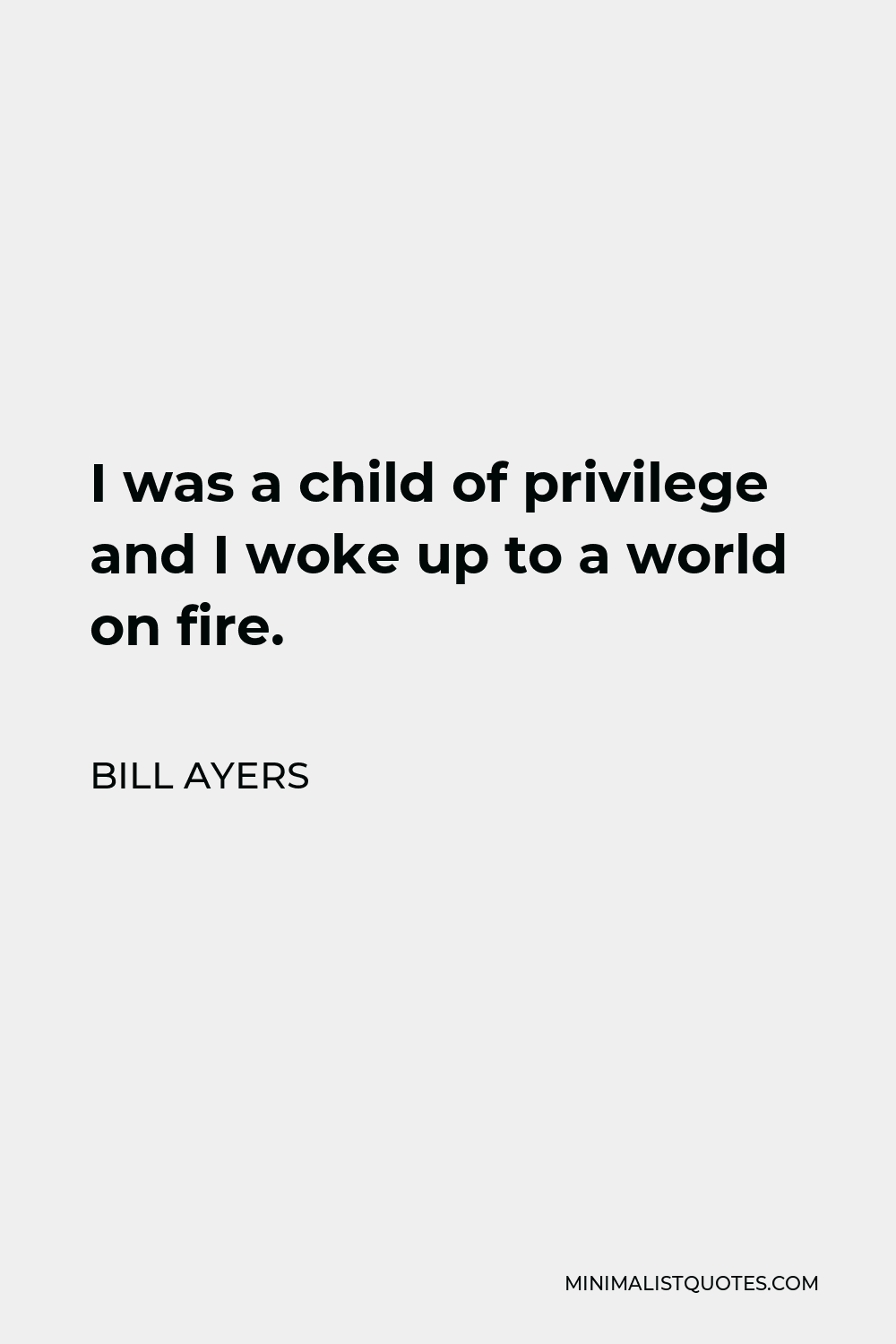[Barack] Obama doesn’t disappoint me, because all during the campaign he said, I’m a pragmatic, middle-of-the-road, compromising politician.
BILL AYERSI was a child of privilege and I woke up to a world on fire.
More Bill Ayers Quotes
-





![Bill Ayers Quote - [Barack] Obama doesn’t disappoint me, because all during the campaign he said, I’m a pragmatic, middle-of-the-road, compromising politician.](https://minimalistquotes.com/images/barack-obama-doesnt-disappoint-me-because-all-duri.jpg)
-






So I had the great advantage of being able to play up to the older kids and play down to the younger kids and I think that’s part of what propelled me to become a teacher at some point in my life. But it was a comfortable childhood. It was a privileged childhood.
BILL AYERS -





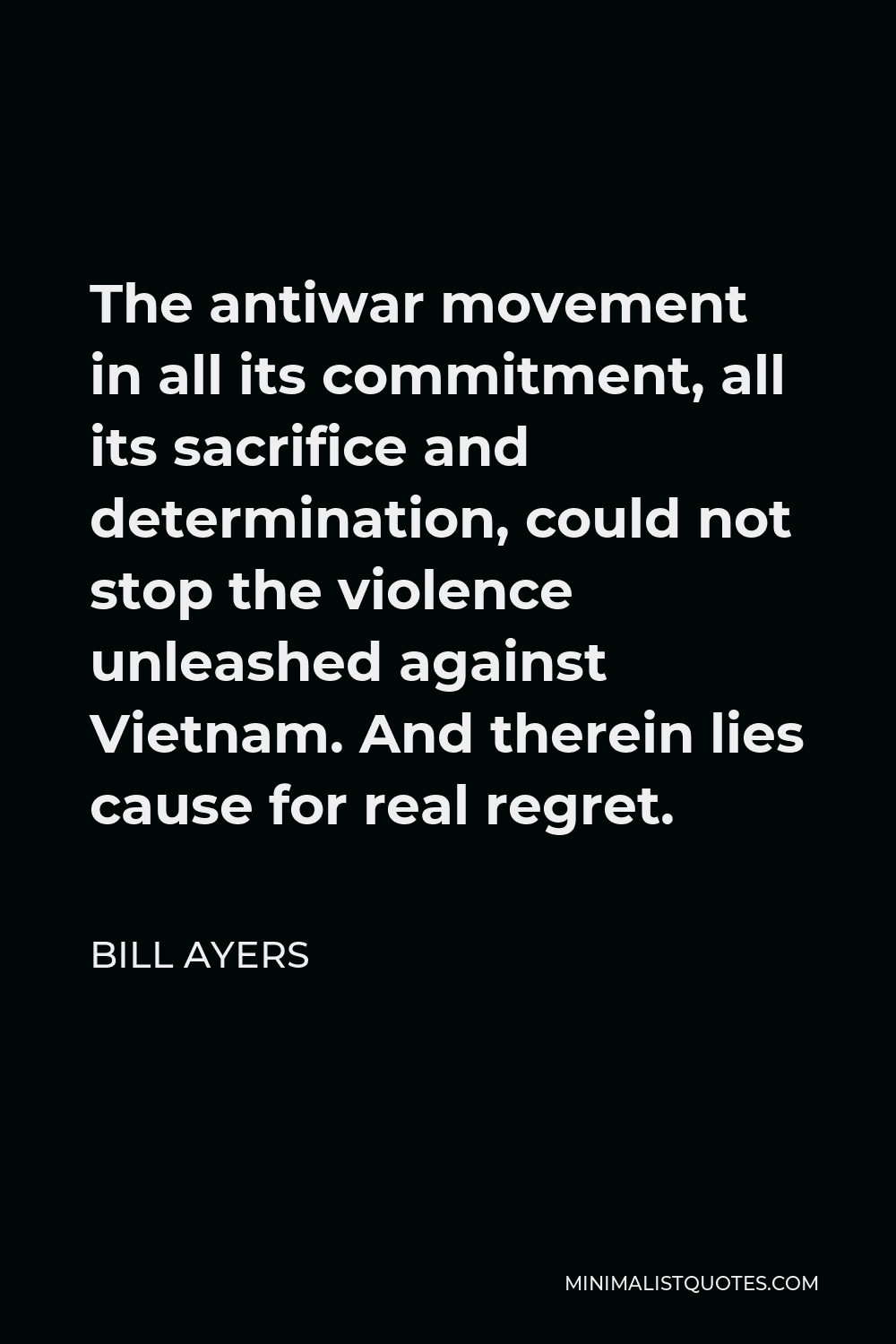
The antiwar movement in all its commitment, all its sacrifice and determination, could not stop the violence unleashed against Vietnam. And therein lies cause for real regret.
BILL AYERS -





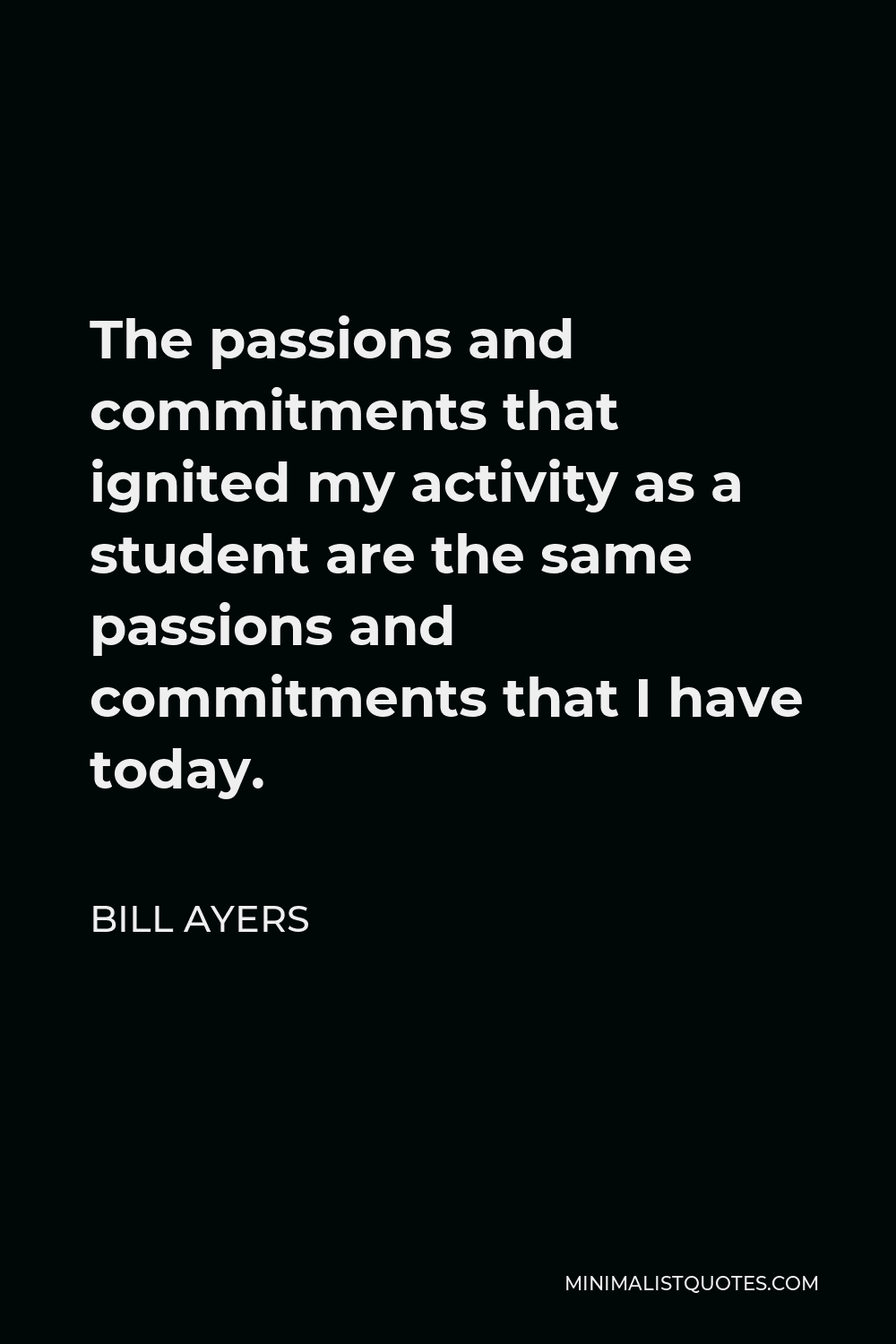
The passions and commitments that ignited my activity as a student are the same passions and commitments that I have today.
BILL AYERS -





![Bill Ayers Quote - Certainly my parents were Dr. [Benjamin] Spock-driven parents. So they were tolerant.](https://minimalistquotes.com/images/certainly-my-parents-were-dr-benjamin-spock-driven.jpg)
Certainly my parents were Dr. [Benjamin] Spock-driven parents. So they were tolerant.
BILL AYERS -





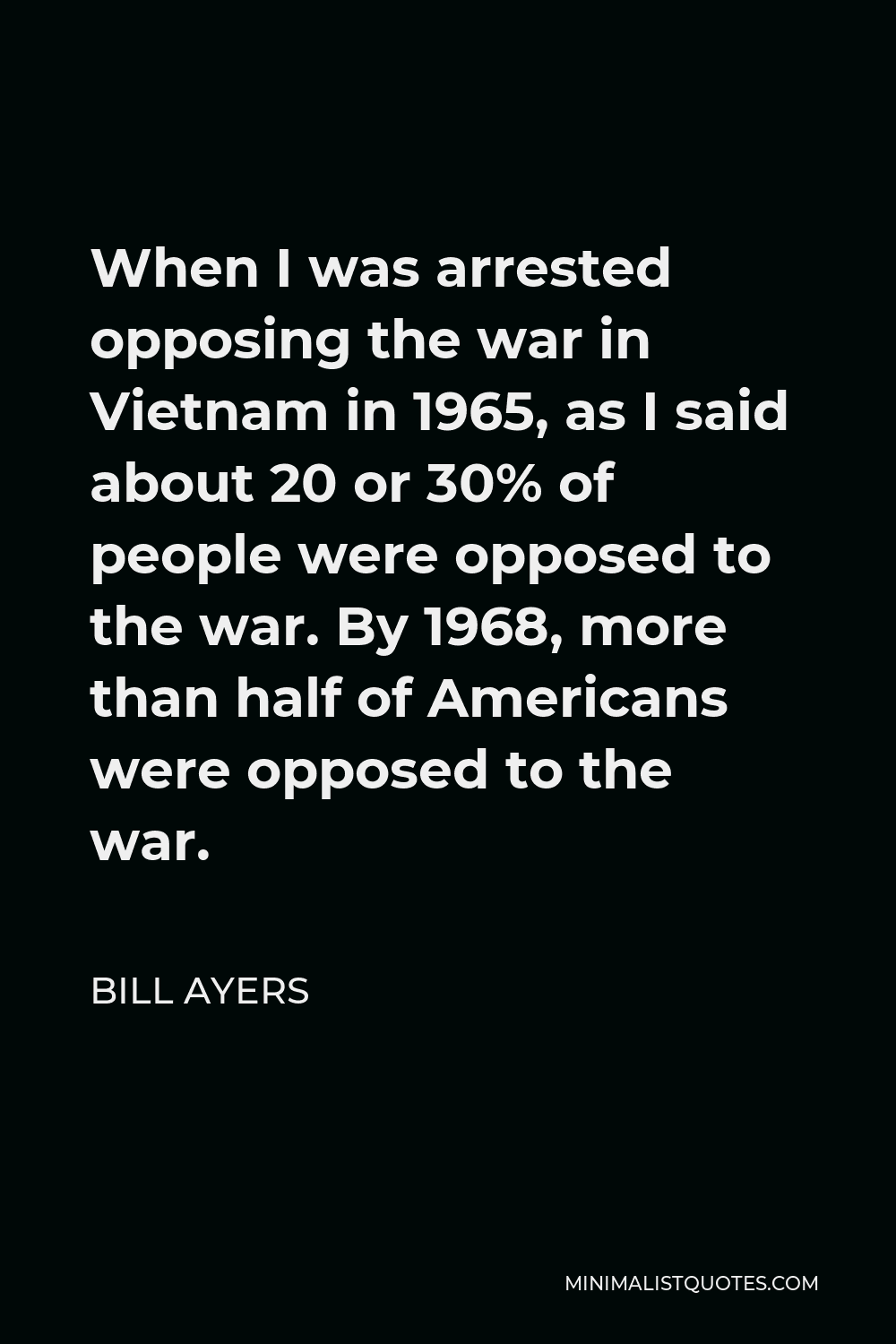
When I was arrested opposing the war in Vietnam in 1965, as I said about 20 or 30% of people were opposed to the war. By 1968, more than half of Americans were opposed to the war.
BILL AYERS -





![Bill Ayers Quote - It wasn’t [Barack] Obama per se; it was the feeling on the ground; it was seeing an old black woman in a wheelchair being wheeled by her son waving a big American flag, and then seeing a guy with his baby in his arms saying,](https://minimalistquotes.com/images/it-wasnt-barack-obama-per-se-it-was-the-feeling-on.jpg)
It wasn’t [Barack] Obama per se; it was the feeling on the ground; it was seeing an old black woman in a wheelchair being wheeled by her son waving a big American flag, and then seeing a guy with his baby in his arms saying,
BILL AYERS -





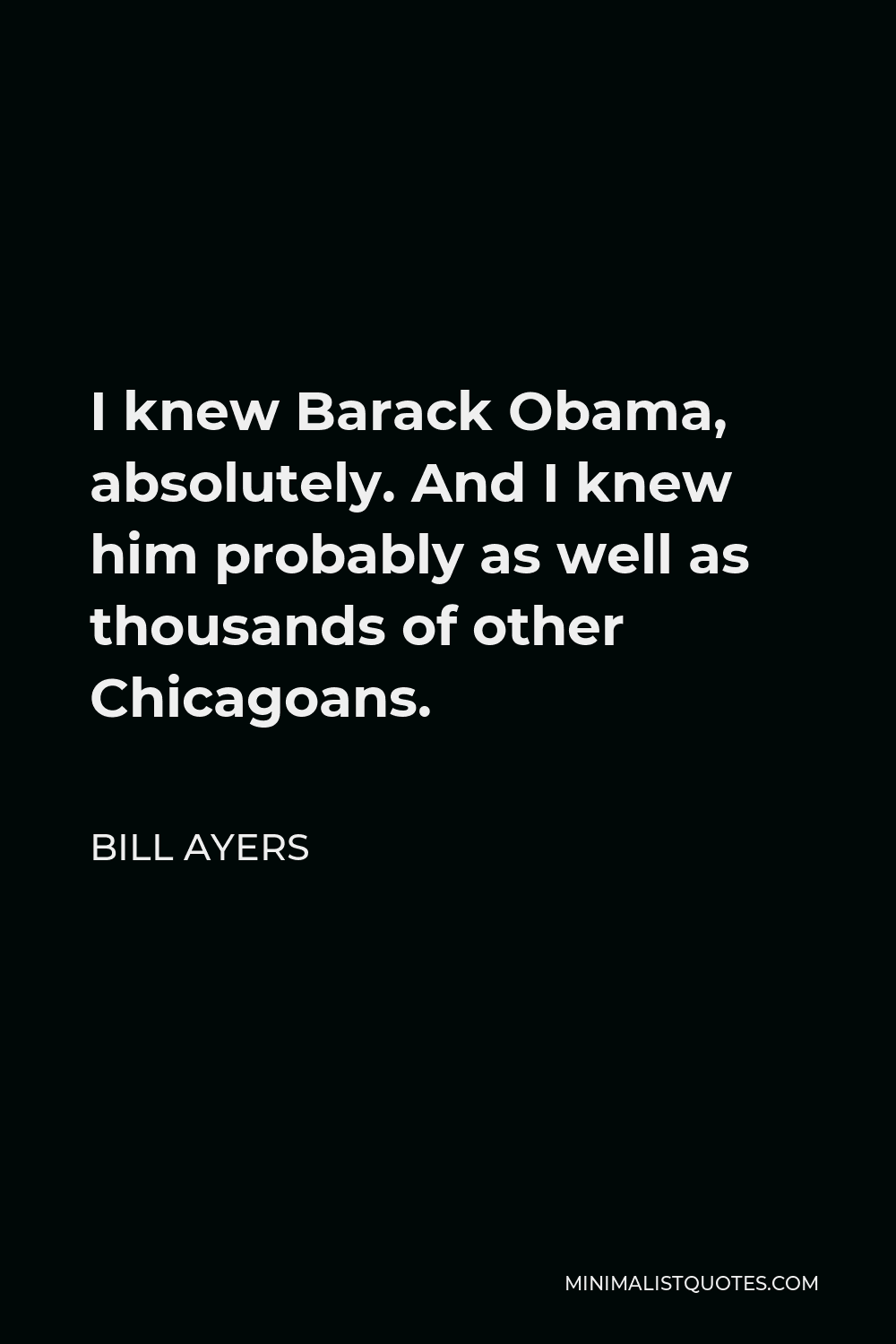
I knew Barack Obama, absolutely. And I knew him probably as well as thousands of other Chicagoans.
BILL AYERS -





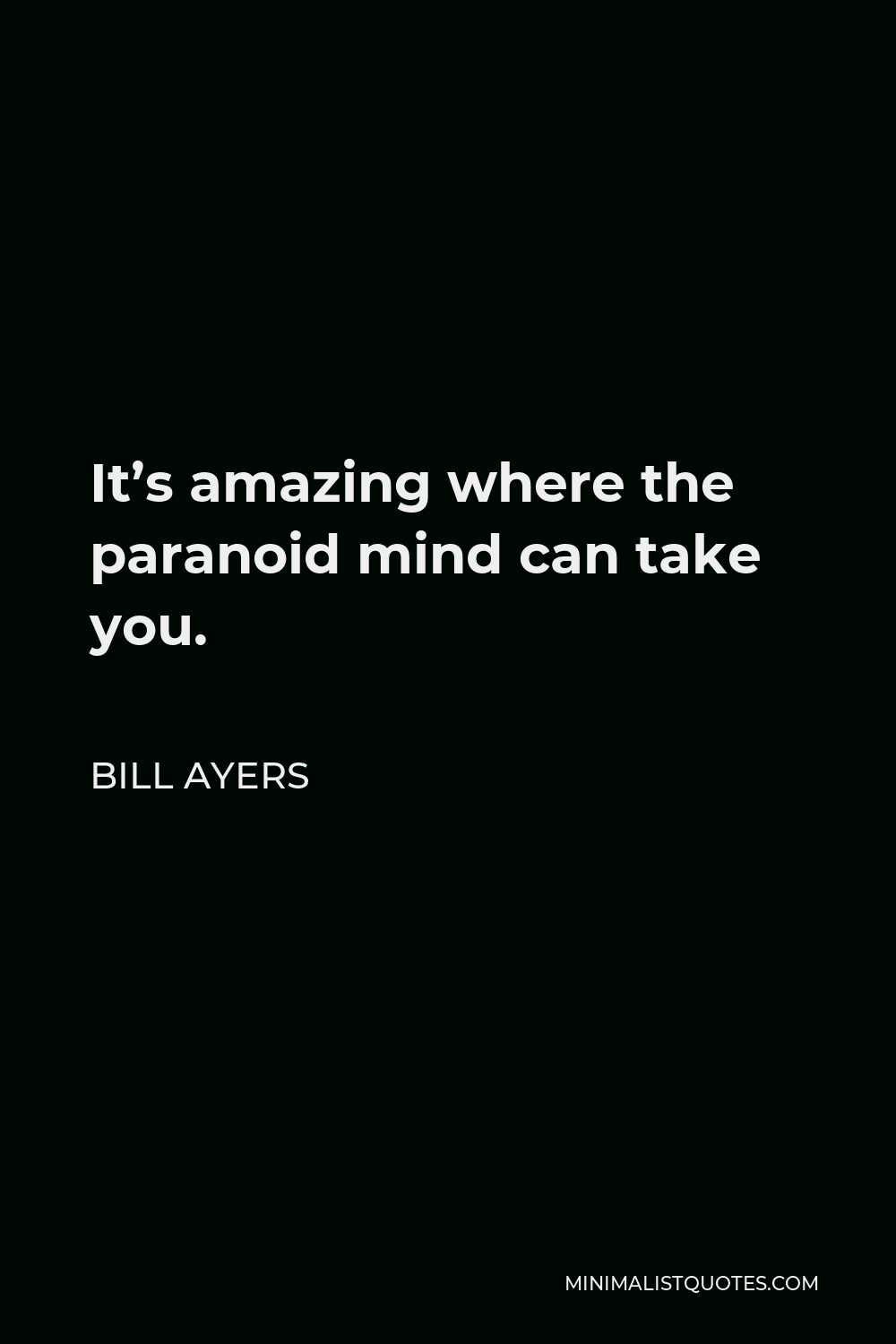
It’s amazing where the paranoid mind can take you.
BILL AYERS -





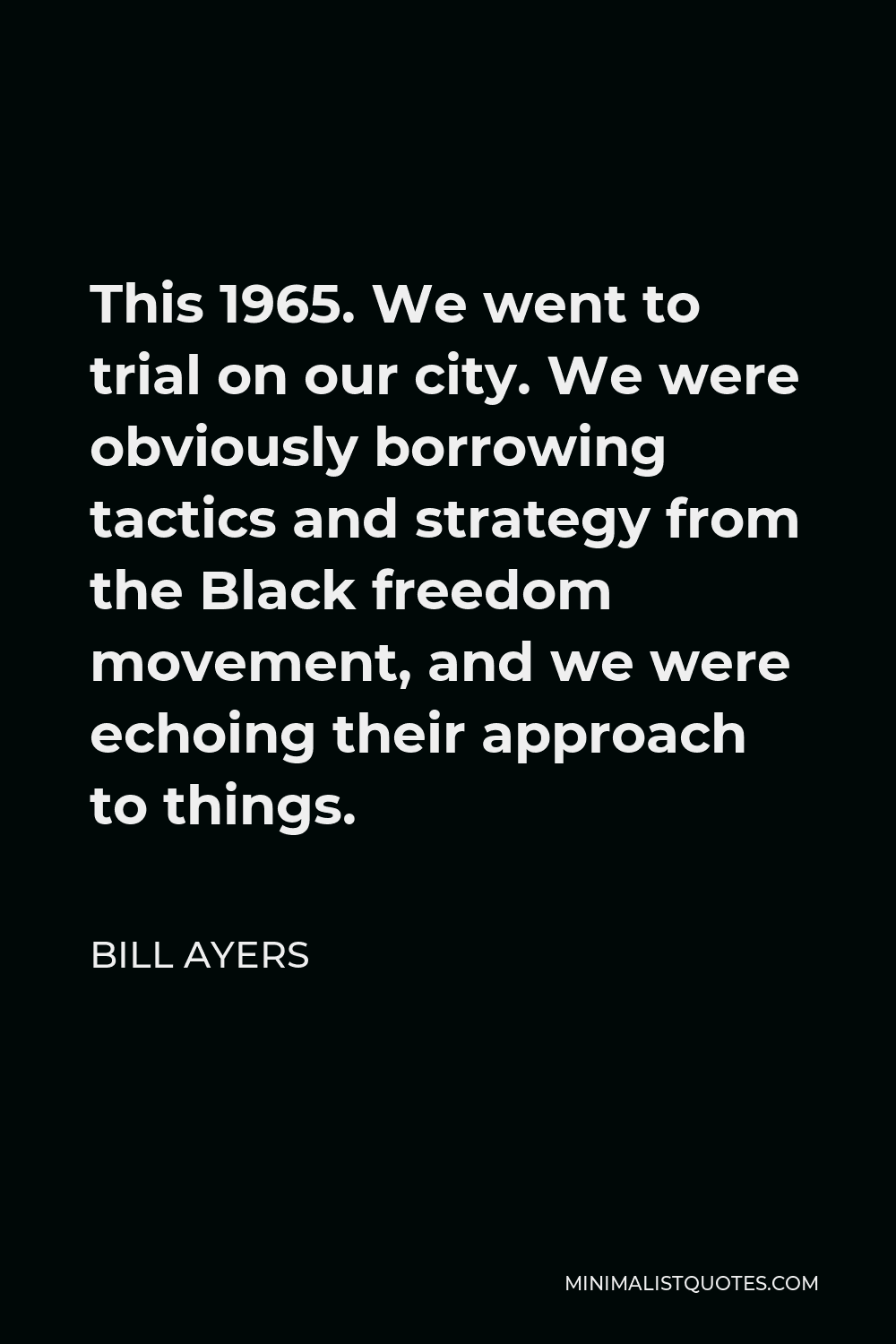
This 1965. We went to trial on our city. We were obviously borrowing tactics and strategy from the Black freedom movement, and we were echoing their approach to things.
BILL AYERS -





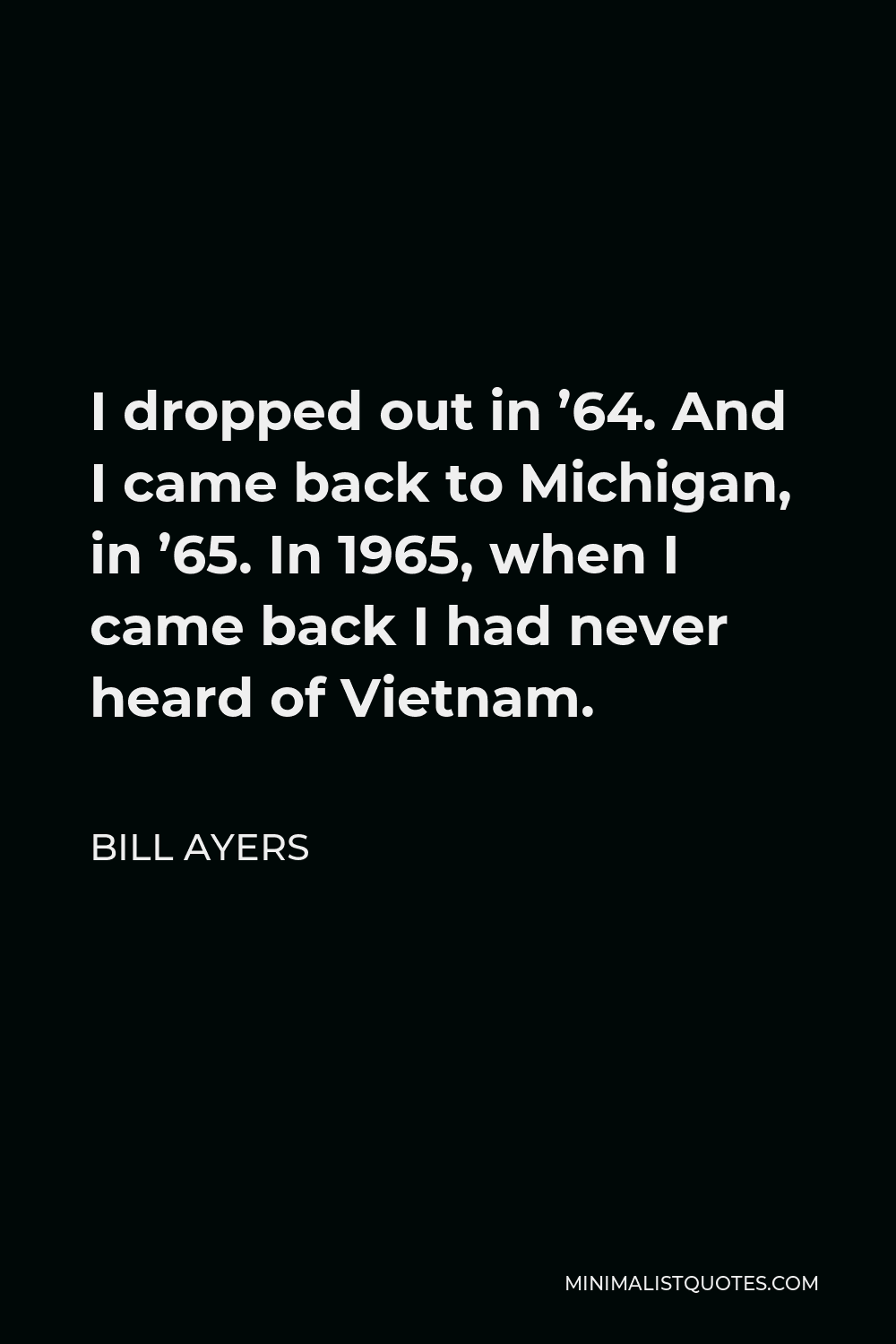
I dropped out in ’64. And I came back to Michigan, in ’65. In 1965, when I came back I had never heard of Vietnam.
BILL AYERS -





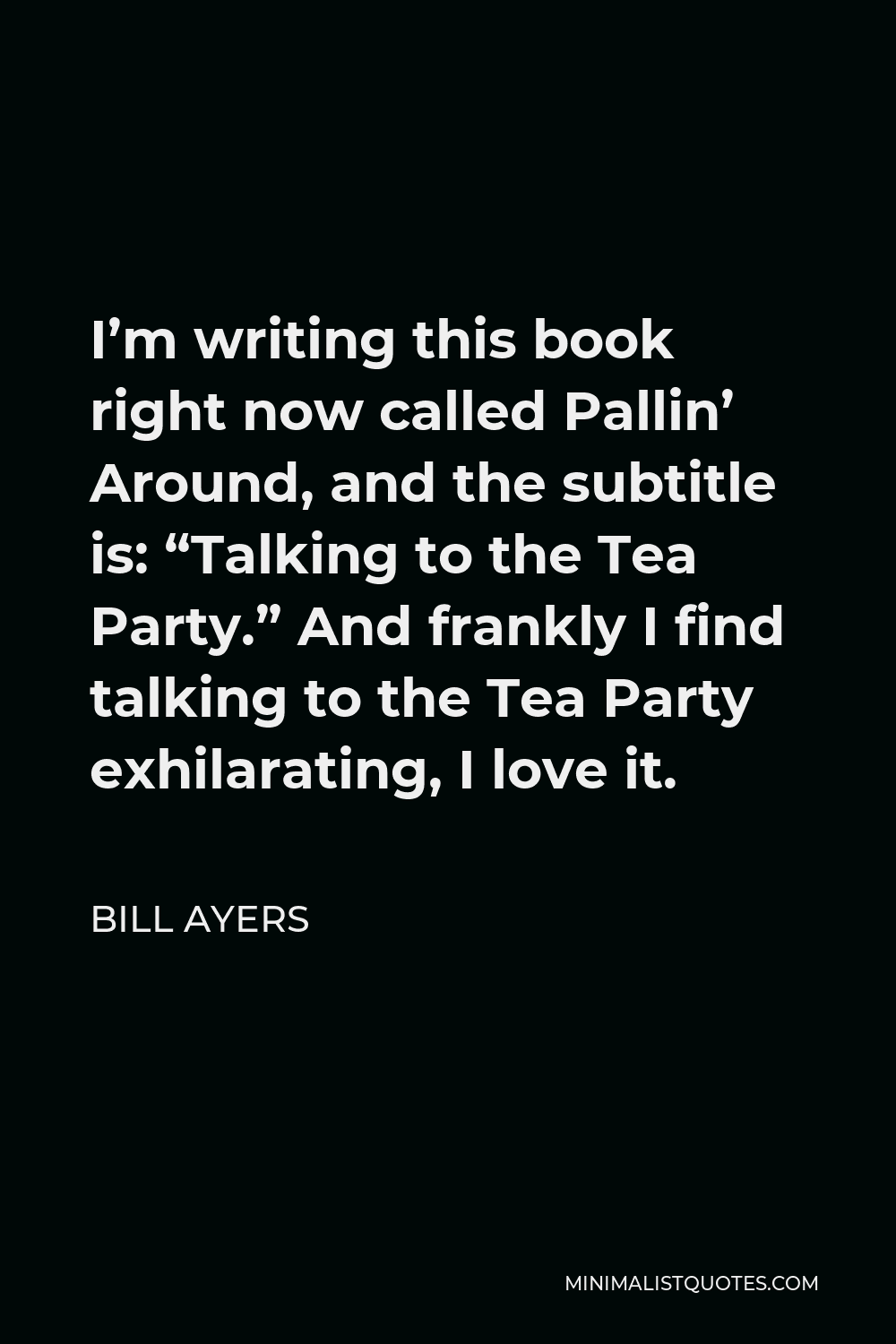
I’m writing this book right now called Pallin’ Around, and the subtitle is: “Talking to the Tea Party.” And frankly I find talking to the Tea Party exhilarating, I love it.
BILL AYERS -





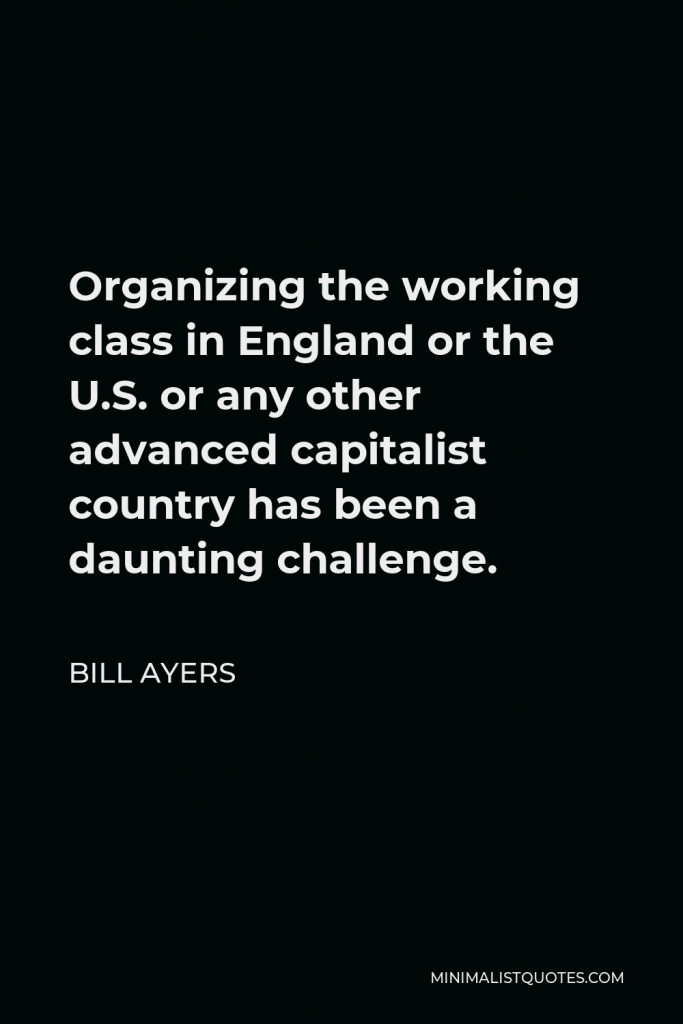

Organizing the working class in England or the U.S. or any other advanced capitalist country has been a daunting challenge.
BILL AYERS -





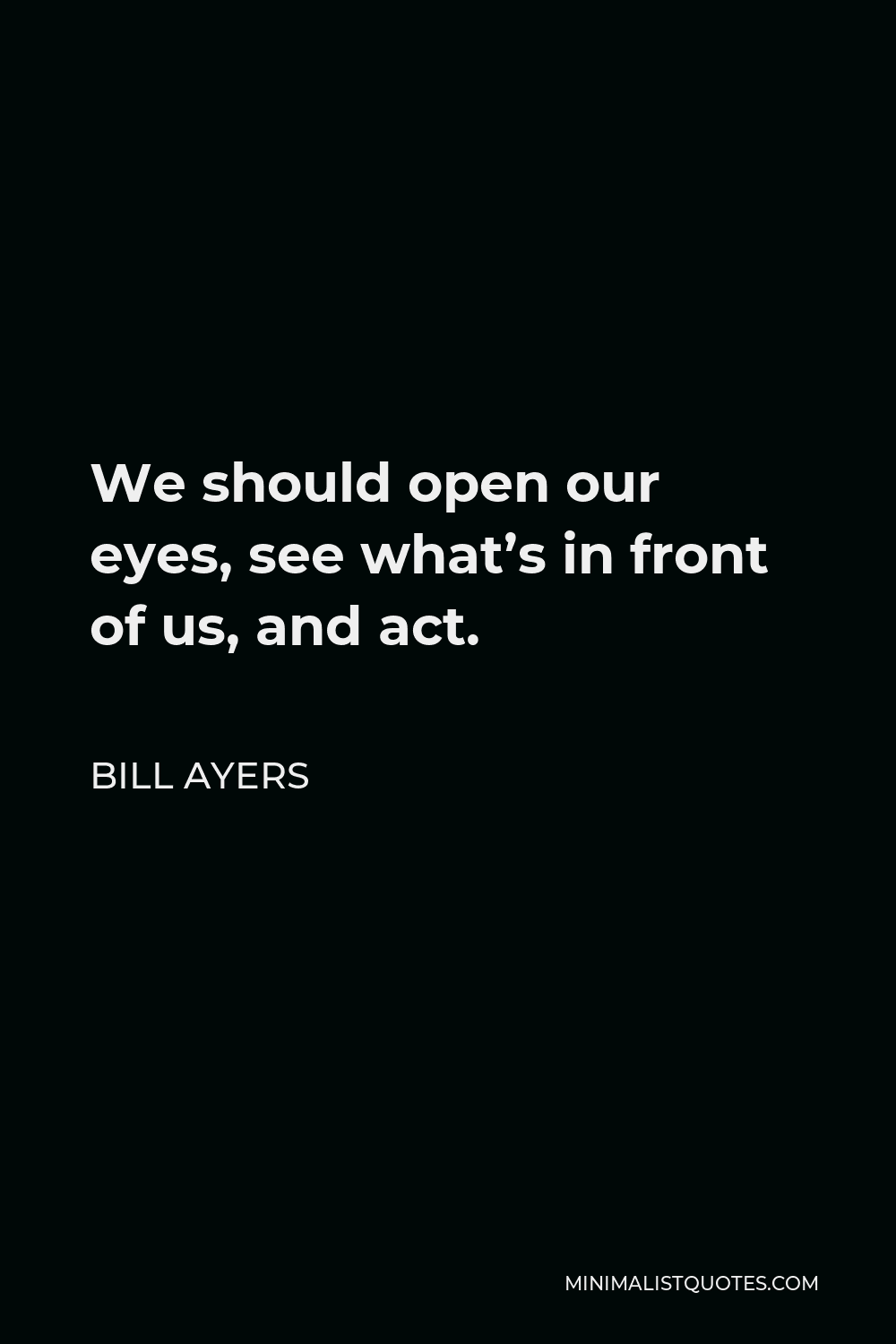
We should open our eyes, see what’s in front of us, and act.
BILL AYERS -





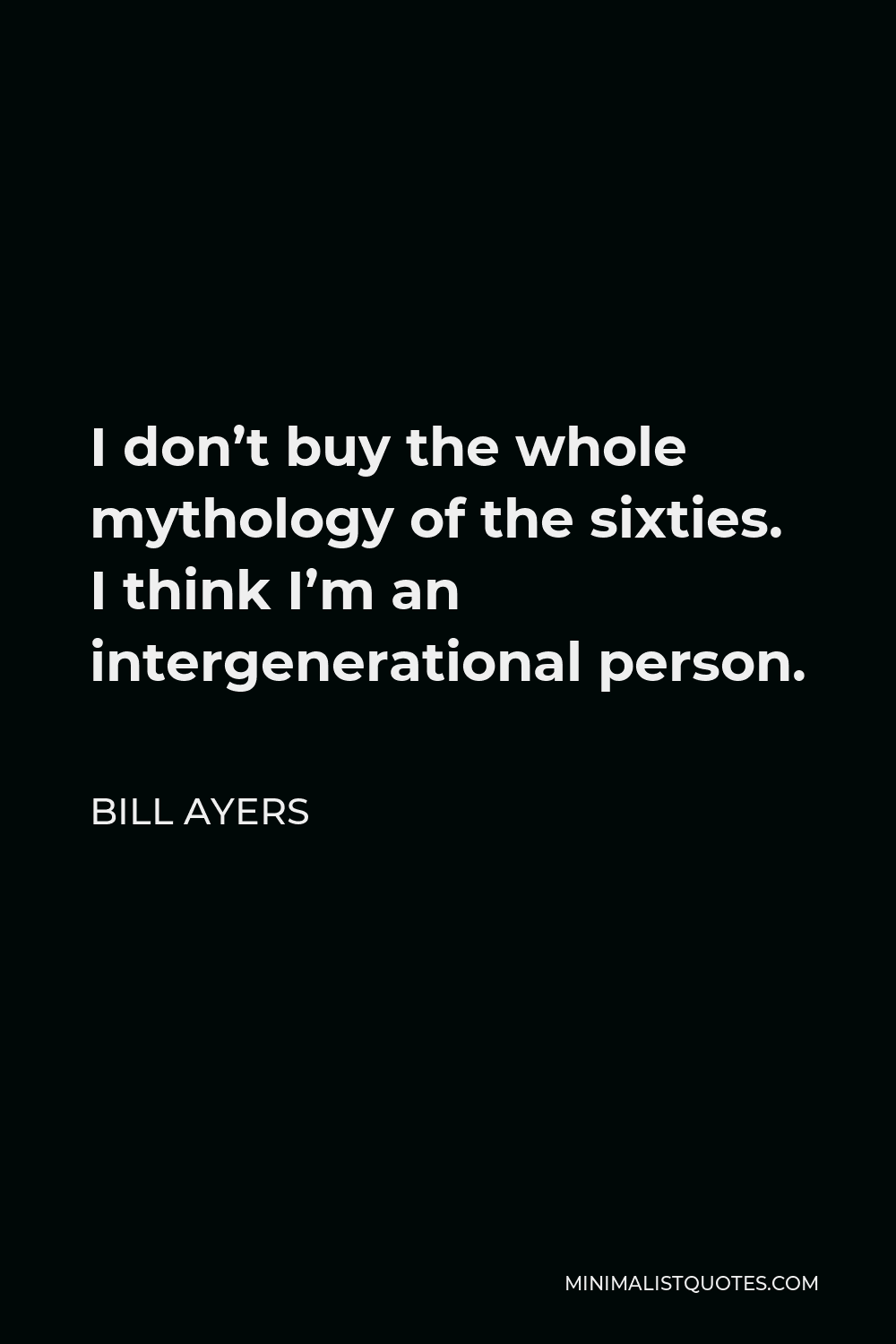
I don’t buy the whole mythology of the sixties. I think I’m an intergenerational person.
BILL AYERS -





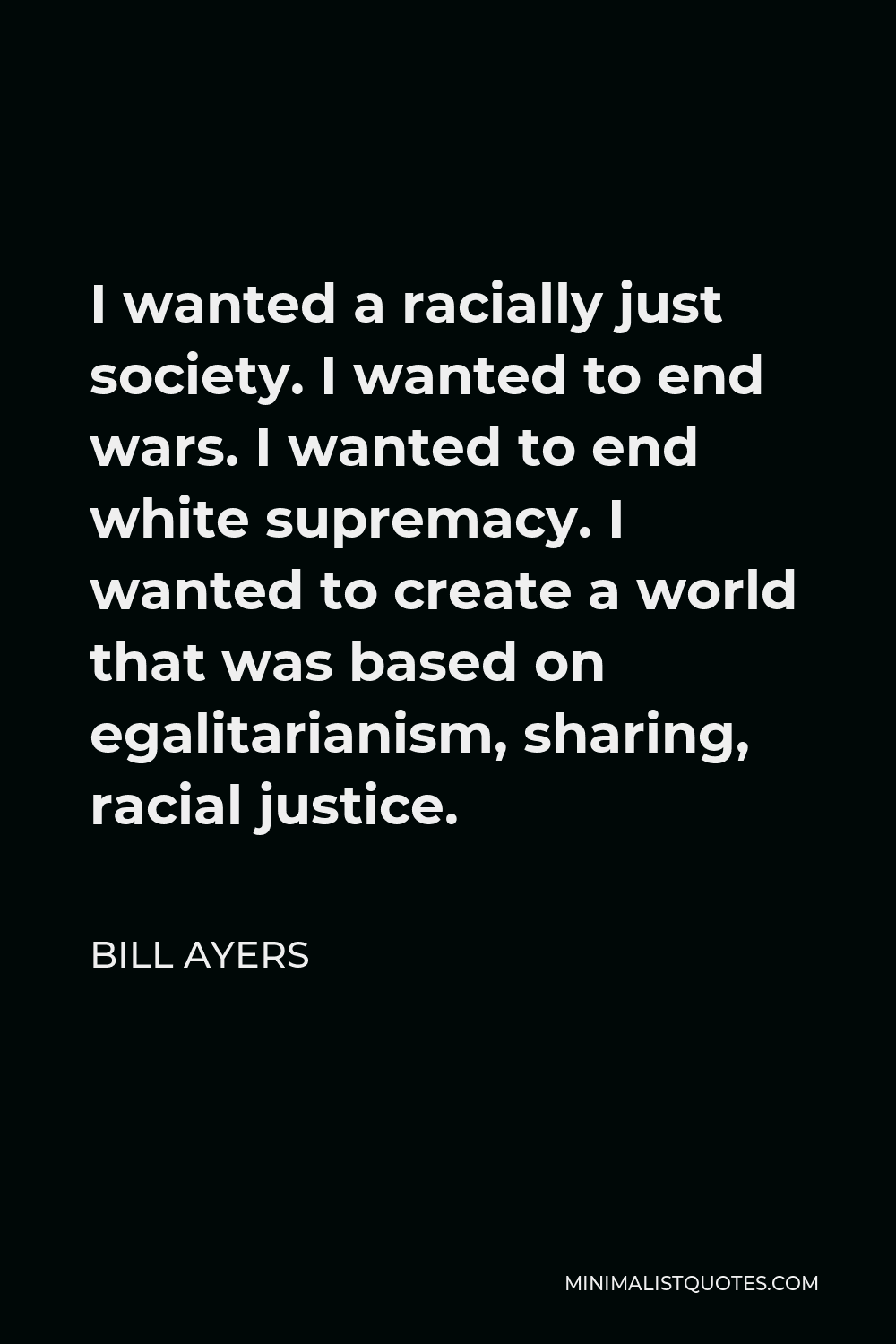
I wanted a racially just society. I wanted to end wars. I wanted to end white supremacy. I wanted to create a world that was based on egalitarianism, sharing, racial justice.
BILL AYERS
